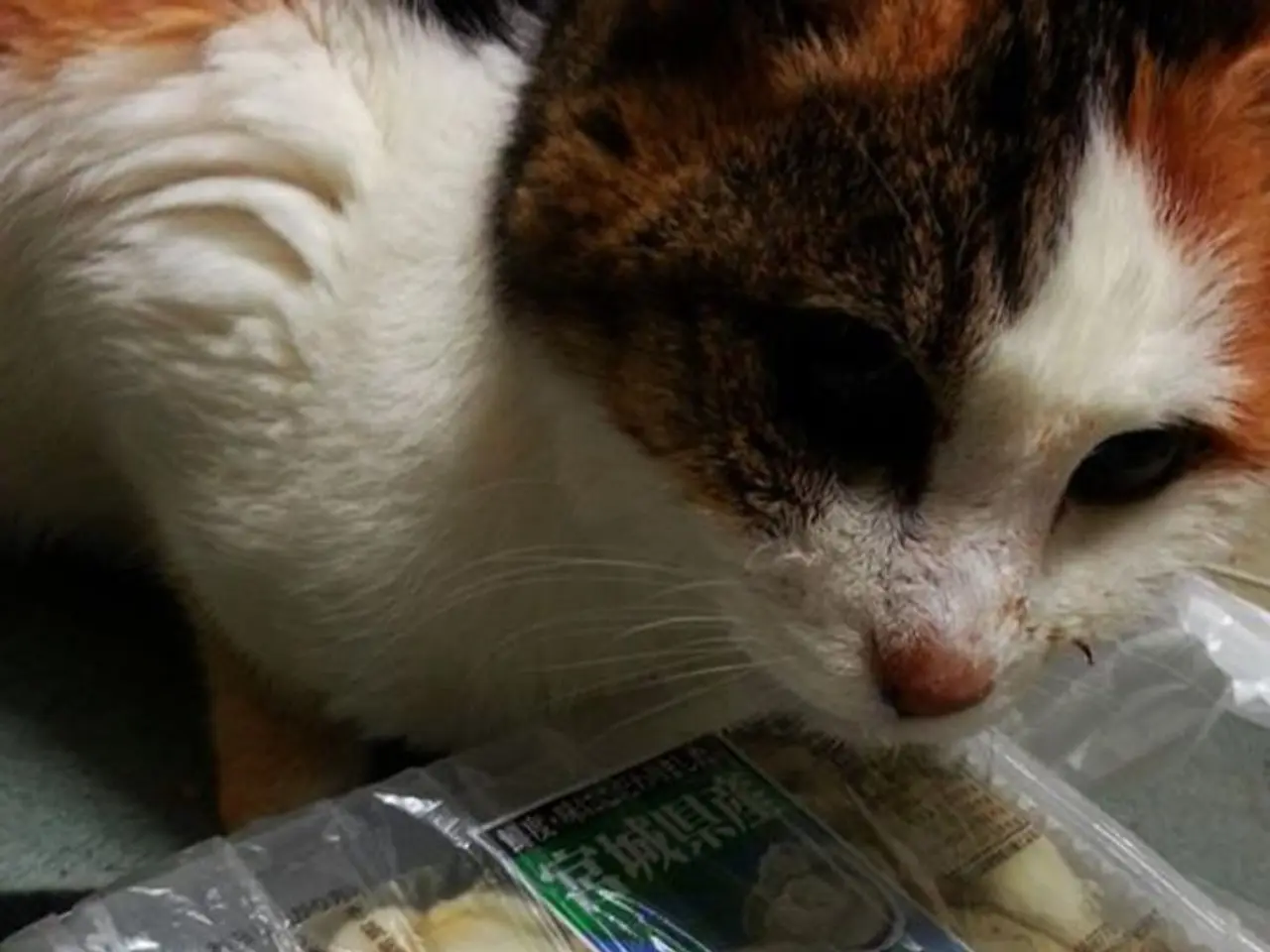Cats may consume peanut butter, but it's important to distinguish between whether they can versus whether they should.
================================================
Most domestic cats do not find the taste of peanut butter appealing, consuming it out of curiosity rather than necessity. However, the high fat, sugar, and salt content in peanut butter can lead to gastrointestinal issues, obesity, and other health problems in cats.
While some pet parents use peanut butter to hide pills or as a rare treat for their pets, it's not generally safe or recommended as a regular treat. This is due to the potential risks associated with its sticky texture, which poses a choking hazard, and the presence of harmful additives such as xylitol or preservatives that can be toxic or unsafe.
Instead, healthier alternatives for cat treats include specially formulated commercial cat treats that meet feline nutritional standards, small pieces of cooked lean meats like chicken, turkey, or fish, and occasional safe fruits like blueberries. These options provide nutrition that aligns better with a cat’s obligate carnivore diet and support their overall wellbeing.
If you're considering offering your cat a tiny amount of plain peanut butter (the size of a pea), it's crucial to observe for signs of an allergic reaction or digestive distress. In such cases, it's always best to consult your vet before offering peanut butter to your cat.
Unsalted peanuts, crushed and offered in moderation, can also be a healthier option for cats, providing them with essential nutrients. However, they should not form a regular part of a cat's diet due to their fat content.
In summary, while a small amount of plain peanut butter might not cause immediate harm, it is best avoided as a regular treat in favor of safer, cat-appropriate alternatives. Monitoring for any allergic or adverse reactions is also important if your cat accidentally consumes peanut butter.
[1] ASPCA. (2021). Peanut Butter. Retrieved from https://www.aspca.org/pet-care/animal-poison-control/toxic-and-non-toxic-plants/peanut-butter
[2] VCA Hospitals. (2021). Peanut Butter Toxicity in Dogs and Cats. Retrieved from https://vcahospitals.com/know-your-pet/peanut-butter-toxicity-in-dogs-and-cats
[3] Cornell Feline Health Center. (2021). Peanut Butter. Retrieved from https://www.vet.cornell.edu/departments-centers-and-institutes/cornell-feline-health-center/health-information/feline-health-topics/peanut-butter
[4] BluePearl Specialty + Emergency Pet Hospital. (2021). Peanut Butter: Safe or Not for Your Pet? Retrieved from https://www.bluepearlvet.com/pet-health-resources/articles/peanut-butter-safe-or-not-for-your-pet
[5] PetMD. (2021). Peanut Butter and Your Cat. Retrieved from https://www.petmd.com/cat/care/peanut-butter-and-your-cat
- Incorporating technology, such as mobile apps or websites, can aid pet owners in maintaining their pets' health and wellness by providing guidance on appropriate food-and-drink options and lifestyle activities for various pets, including cats.
- As science continues to evolve, new breakthroughs in health-and-wellness technologies offer promise for pets, with much research focused on developing personalized diet plans that cater to each pet's unique nutritional needs, thereby improving overall wellbeing and longevity.
- A balanced lifestyle for pets and their owners can include outdoor activities, such as walking or jogging together, along with a focus on the importance of mental stimulation through interactive toys or puzzle feeders made of eco-friendly materials, contributing to overall pet lifestyle enhancement.




